
The O'Jays are an American R&B group from Canton, Ohio, formed in summer 1958 and originally consisting of Eddie Levert, Walter Lee Williams, William Powell, Bobby Massey, and Bill Isles. The O'Jays made their first chart appearance with the minor hit "Lonely Drifter" in 1963, but reached their greatest level of success once the producers Gamble & Huff signed them to their Philadelphia International label in 1972. With Gamble & Huff, the O'Jays emerged at the forefront of Philadelphia soul with Back Stabbers (1972), and topped the US Billboard Hot 100 the following year with "Love Train". Several other US R&B hits followed, and the O'Jays were inducted into the Vocal Group Hall of Fame in 2004, The Rock and Roll Hall of Fame in 2005, and the Rhythm and Blues Music Hall of Fame in 2013.

The Trammps are an American disco and soul band, who were based in Philadelphia and were one of the first disco bands.

Back Stabbers is a studio album by Philadelphia soul group the O'Jays, released in August 1972 on Philadelphia International Records and the iTunes version was released and reissued under Epic Records via Legacy Recordings. Recording sessions for the album took place at Sigma Sound Studios in Philadelphia, Pennsylvania in 1972.

A Brand New Me is the sixth studio album by English singer Dusty Springfield, released in 1970.

The Stylistics is the debut album by American R&B group the Stylistics, released in November 1971 on the Avco record label. It was produced by Thom Bell and recorded at Sigma Sound Studios in Philadelphia. The album has been called "a sweet soul landmark."

Wake Up Everybody is an album released by Harold Melvin & the Blue Notes on the Philadelphia International record label in November 1975. It was produced by Kenneth Gamble & Leon Huff. This would be the last album to include Teddy Pendergrass before he left the group for a solo career.

"For the Love of Money" is a soul, funk song that was written and composed by Kenneth Gamble, Leon Huff, and Anthony Jackson; it was recorded by Philadelphia soul group The O'Jays for the album Ship Ahoy. Produced by Gamble and Huff for Philadelphia International Records, "For the Love of Money" was issued as a single in late 1973, with "People Keep Tellin' Me" as its B-side. The single peaked at number three on the U.S. Billboard R&B chart, and at No. 9 on Billboard's Pop Singles chart in spring 1974. Though the album version of the song was over seven minutes long, it received substantial radio airplay. The song's title comes from a well-known Bible verse, 1 Timothy 6:10: "For the love of money is the root of all evil: which while some coveted after, they have erred from the faith, and pierced themselves through with many sorrows." The song was also used as the opening theme song for NBC’s The Apprentice.
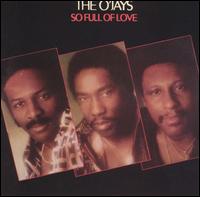
So Full Of Love is a 1978 album by the O'Jays. The album contains the No. 1 R&B hit "Use ta Be My Girl", and was awarded RIAA Platinum Certification for sales of 1,000,000 copies.

Ship Ahoy is an album by Philadelphia soul group The O'Jays, released in 1973 on Philadelphia International Records. The album was a critical and commercial success, entering Billboard on November 10, and reaching No. 11. It reached No. 1 on the "Black Albums" chart and launched two hit singles, "For the Love of Money" and "Put Your Hands Together." Conceived as a theme album built around the title track, Ship Ahoy includes socially relevant tracks and love songs under a cover that is itself notable for its serious subject matter. The album, which achieved RIAA platinum certification in 1992 for over 1 million copies sold, has been reissued multiple times, including in a 2003 edition with a bonus track. Ship Ahoy was the highest selling R&B album on the Billboard Year-End chart for 1974.
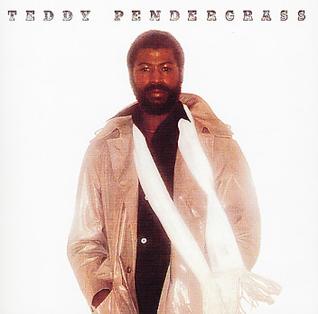
Teddy Pendergrass is the debut solo album from the American R&B/soul singer Teddy Pendergrass, released in 1977.

Life Is a Song Worth Singing is the second studio album by American musician Teddy Pendergrass. It was released on June 2, 1978, by Philadelphia International Records and Sony Music Entertainment. Pendergrass supported the album by touring with the Isley Brothers.

It's Time for Love is an album by the R&B crooner Teddy Pendergrass. It did quite well, peaking at #19 on the Billboard albums chart and #6 on the R&B album charts. It also spawned three singles: "I Can't Live Without Your Love", "You're My Latest, My Greatest Inspiration" and "Nine Times Out of Ten/The Gift of Love". This was the last album released by Pendergrass before being paralyzed in a car accident the following year.

Black & Blue is an album released by Harold Melvin & the Blue Notes on the Philadelphia International record label in September 1973. It was produced by Kenneth Gamble & Leon Huff.
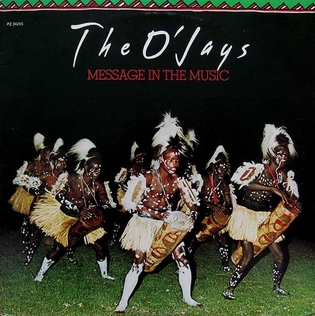
Message in the Music is a 1976 album by American R&B group the O'Jays.
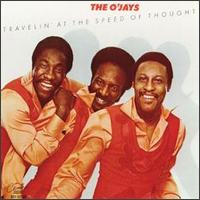
Travelin' at the Speed of Thought is an album by the American R&B group the O'Jays, released in 1977 on Philadelphia International Records. Unusual for the time, there had been no advance single release from the album; the only single subsequently issued, "Work on Me", became a #7 R&B hit but failed to reach the pop listings, making this the first O'Jays PIR album without a top 100 pop single. Travelin' at the Speed of Thought peaked at #6 on the R&B chart and reached #27 on the pop chart. The album achieved a gold certification.

Family Reunion is a 1975 album by American R&B group The O'Jays.

Identify Yourself is a 1979 album by American R&B group the O'Jays, released on the Philadelphia International Records label. It was recorded at Sigma Sound Studios in Philadelphia, with four tracks produced by Kenny Gamble and Leon Huff, three by group members Eddie Levert and Walter Williams and one by the esteemed Philadelphia producer and composer Thom Bell.

War of the Gods is an album by soul singer Billy Paul. The album was produced by Kenny Gamble and Leon Huff and arranged by Bobby Martin and Lenny Pakula. Released in 1973, the album reached number 12 on the Billboard soul chart and number 110 on the pop chart. The single "Thanks for Saving My Life" was a top 40 hit, reaching number 37 on the pop chart and was a top-10 soul record reaching number 9. In 2012, Big Break Records remastered and reissued the album on CD with bonus tracks and new liner notes.

Wilson Pickett in Philadelphia is the eleventh studio album by singer Wilson Pickett released in 1970. After cutting many of his earlier albums in the Deep South, Pickett headed to Philadelphia to work with Gamble and Huff at Sigma Sound Studios. The album features two of Pickett's most popular singles from the early 1970s - "Engine No. 9" and "Don't Let the Green Grass Fool You".
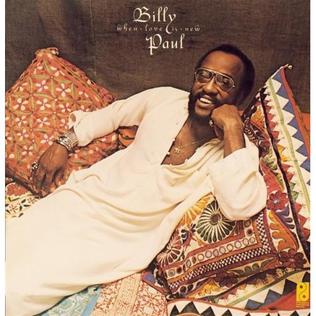
When Love is New is an album by soul singer Billy Paul. It was produced by Kenny Gamble & Leon Huff; arranged by Bobby Martin, Dexter Wansel, Norman Harris, and Jack Faith; and engineered by Joe Tarsia. Released in December 1975, it reached #139 on the Billboard Pop Album chart and #17 on the Soul chart. It includes the singles "Let's Make a Baby" which hit #83 on the Pop singles chart, #18 on the Soul chart, and #30 in the UK and "People Power" which reached #82 on the Soul chart and #14 on the U.S. Dance chart. The album was reissued on CD in 2010 by the U.K.'s Edsel Records. This was the final album where Paul was backed by MFSB, the house band of Philadelphia International Records (PIR).




















